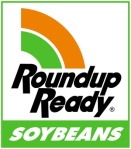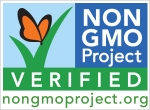Even though GMOs have been in our food supply for years, there are still a lot of unanswered questions about them. There are legitimate environmental and societal concerns including the corporate control of the food supply, loss of crop diversity, and the escalating use of herbicides. The safety of GMOs is a whole other matter and something that is very important to me as a health professional.
Proponents claim they offer a plethora of benefits including higher yields, more nutritious food to feed the hungry, fewer weeds and bugs, and a decrease in herbicide use. But reality tells an entirely different story. While they make millions for multinational corporations, they don’t offer consumers a thing.
Although it is nearly impossible to have a civil conversation about GMOs, discussion about scientific issues is necessary and important. Here are 10 things worth considering in the ongoing and contentious debate about GMOs.
1. GMOs have not helped to feed the world. This is partly because a lot of GMO corn and soy are used for other things such animal feed or ethanol production, and not human consumption. Most of the GMOs we do consume are found in the junkiest processed food available, which does not improve anyone’s nutritional status. Although we grow more GMOs than any other country, 33.3 million adults and 15.8 million childrenlive in households that are food insecure.
2. Yields for GMO corn and soy have not gone up significantly. But herbicide use has increased by 404 million pounds.
3. Weeds are becoming resistant to the herbicide glyphosate (used with GMOs) and now cover about as much farm land as the state of Oregon. A toxic new herbicide called Enlist Duo, made with 2,4 D (half of agent orange), has been approved by the Environmental Protection Agency to fight these weeds. This herbicide is linked to non-Hodgkin lymphoma, Parkinson’s, and may be particularly harmful to children.
4. GMOs have dramatically decreased the monarch butterfly population due to glyphosates destruction of milkweed, the monarch’s breeding habitat.
5. Some believe the hypothetical “golden rice,” genetically engineered to be higher in vitamin A, could help prevent blindness. However, Jonathan Foley, Ph.D., and executive director of the California Academy of Sciences says, “Why pick an expensive, high-tech approach — costing millions of dollars and decades of work, with no guarantee that people will accept and eat orange-colored rice — rather than low-tech, simple solutions that could work right now?” Why indeed.
6. GMO proponents on one hand say GMOs are safe, but on the other hand say nothing is proven safe. So which is it? The truth is all we have are animal studies. Without long-term data in humans, we will never know if they are safe for us, nor will we know their long-term health effects. Even the American Cancer Society says the “…long term health effects are unknown.”
7. Substantial equivalence, which is used by the Food and Drug Administration (FDA) to approve GMOs, compares the compositional analyses of a GMO crop to a similar plant that is not a GMO (isoline). This process looks at nutrients, antinutrients, and toxins to determine if there are any significant changes. The problem is there may be other changes we are not aware of that are not a part of this comparison. Trans fats, for example, have just one change in the placement of a single hydrogen atom. That one change totally alters their impact on human health. Are we really aware of all of the subtle changes that can occur with genetic engineering?
Additionally, substantial equivalence has failed the FDA before. Metal on metal hip replacements are one example of a technology approved using substantial equivalence with disastrous results. These hip replacements had a high failure rate due to the erosion of metal and it’s migration into the surrounding tissues. Ultimately, it’s impossible to know the long-term implications of a technology without appropriate research.
8. Some think that GMOs must be safe since we have been eating them for 17 years without any demonstrated harm. However, in reality our health has been declining, not improving. We weigh more and have more co-morbid conditions than ever before. In fact, a recent Journal of the American Medical Association article states that we spend a fortune on health in the US, more than any other industrialized nation, yet we have “fallen behind peer countries in terms of improvements in population health.” While you can’t say this is because of GMOs, you can’t say its not. And that’s why we need human studies.
9. Questioning GMOs does not mean you’re a fear mongerer, denier, or anti-science and has no relationship to climate change or vaccines. It just means you’re cautious about a technology we don’t need to survive.
10. GMO proponents spent 45 million dollars to block labeling in California and 22 million in Washington. So far they have spent about almost 19 million in Oregon and 11 million in Colorado. That’s close to a 100 million dollars in total. The biggest spenders have been Monsanto, DuPont/Pioneer, Coca Cola, Pepsi, Kraft, Land O’ Lakes, and Kellogg’s. What are they trying to hide?
There are many reasons to question GMOs. But the concerns about safety and impacts on the environment are almost a moot point. The irony is, the behavior of biotech corporations and food manufacturers to thwart labeling at every turn and some scientists, journalists, and bloggers who attempt to discredit anyone who disagrees with their ideology, has alienated many. So for a lot of people, even if someday research shows GMOs are safe and we understand their long-term effects, they still will not want them.
These corporations, organizations, and individuals have tried to bully us and push GMOs into our daily diet without our consent, attempting to tell us what we should eat without any transparency or choice. Dr. Foley got it right when he said:
“It’s about respecting people’s deep cultural connection to food and their right to know what’s in it.”
Food politics guru Marion Nestle, Ph.D., weighed in saying:
“I think much of the public distress over GM foods is because of lack of transparency. Without labels, customers cannot exercise freedom of choice.”
Dr. Nestle was also part of an early focus group for the FDA and reveals:
“We warned the FDA that if GMOs were not labeled, the public would wonder what the industry was trying to hide. This, we said, would not only hurt the FDA’s credibility, but would end up hurting the GMO industry as well.”
And this is their fatal mistake–and their undoing. Even millions spent on clever video programing orchestrated by Conde Nast and Monsanto,the recruitment of mommy bloggers, and misleading articles and hit pieces about anyone who questions GMOs, can’t fix their PR blunder. The consumer rejection of GMOs is why some companies are already “quietly dumping GMO ingredients” as reported by NPR.
Sometimes freedom of choice is the most important consideration of all. Want to exercise yours? Check out my previous post for tips on how to avoid GMOs. And vote “yes” to label GMOs.
Copyright © 2014 Carole Bartolotto, MA, RD. All rights reserved.











